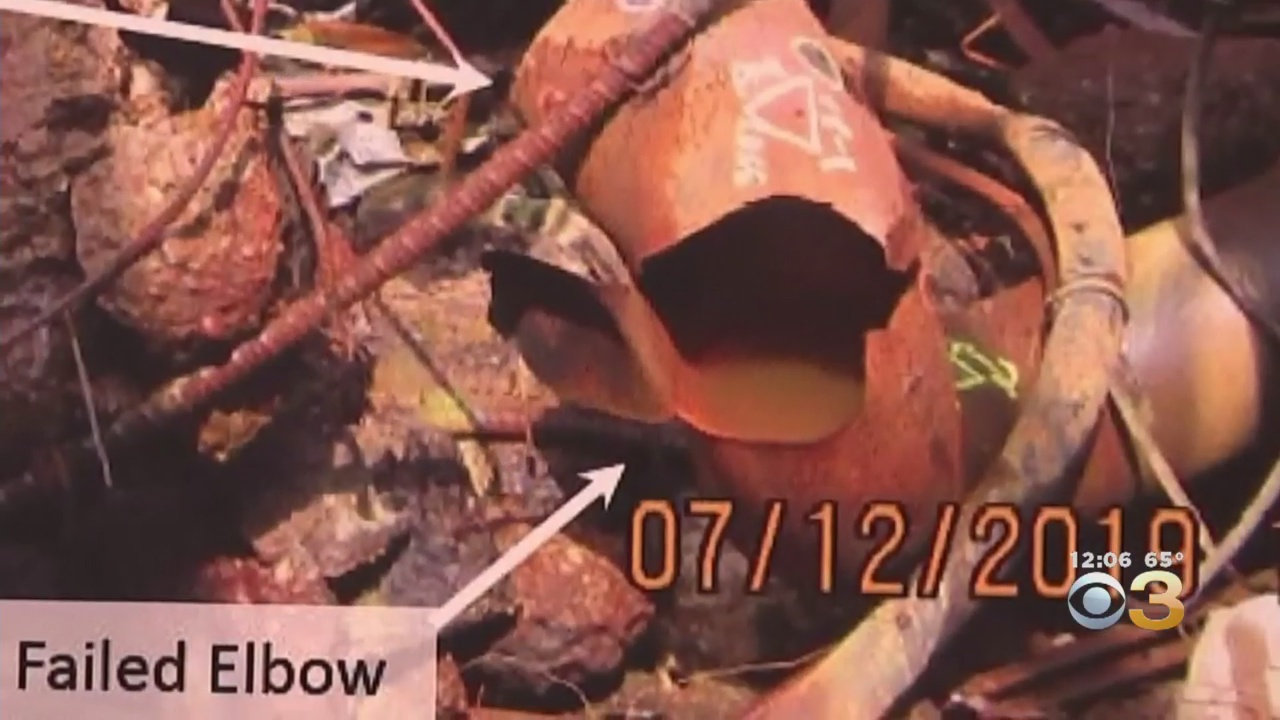Investigators: Corroded Pipe That Caused Explosion At Philadelphia Oil Refinery Wasn't Inspected For Corrosion In Past 45 Years
PHILADELPHIA (CBS/AP) -- Federal investigators revealed Wednesday a corroded pipe caused a fire and explosion at a South Philadelphia oil refinery. The U.S. Chemical Safety Board said a single elbow pipe was so badly corroded, it was half the thickness of a credit card.
When that pipe ruptured, it caused a series of explosions.
Authorities released an animation of the event. The narrated video showed after the elbow pipe ruptured, an initial explosion happened. That led to two other explosions, sparking a massive fire at Philadelphia Energy Solutions on June 21.
The animation is similar to cellphone video showing a ball of fire lighting up the sky. The video and new findings were released by the Chemical Safety Board, an independent agency investigating what went wrong.
"The piping component that failed was installed in the 1970s and although parts of the piping circuit had been inspected as recently as 2018, the specific component had not been inspected for corrosion in the past 45 years," said Dr. Kristen Kulinowski, the board's interim executive director.
Officials say the reason the pipe had not been inspected is because it is not federally required. The oil refinery industry is essentially self-regulated. The Chemical Safety Board wants to change that.
"We will share the lessons learned with the entire industry and nation to ensure we don't see this type of catastrophic failure again," Kulinowski said.
The report also notes that Philadelphia Energy Solutions hired a company to neutralize the hydrofluoric acid contained in areas of the refinery, which was completed at the end of August. About 3,200 pounds of hydrofluoric acid were released into the atmosphere during the incident, but investigators said they are unaware of any health impacts from that release.
Five people suffered minor injuries in the blast.
The final report is expected early in 2020, and Kulinowski said she expects it will contain recommendations addressing 100% inspections of facilities as well as whether hydrofluoric acid should continue to be used in the refining process.
CBS3's Matt Petrillo contributed to this report.
(© Copyright 2019 CBS Broadcasting Inc. All Rights Reserved. The Associated Press contributed to this report.)




